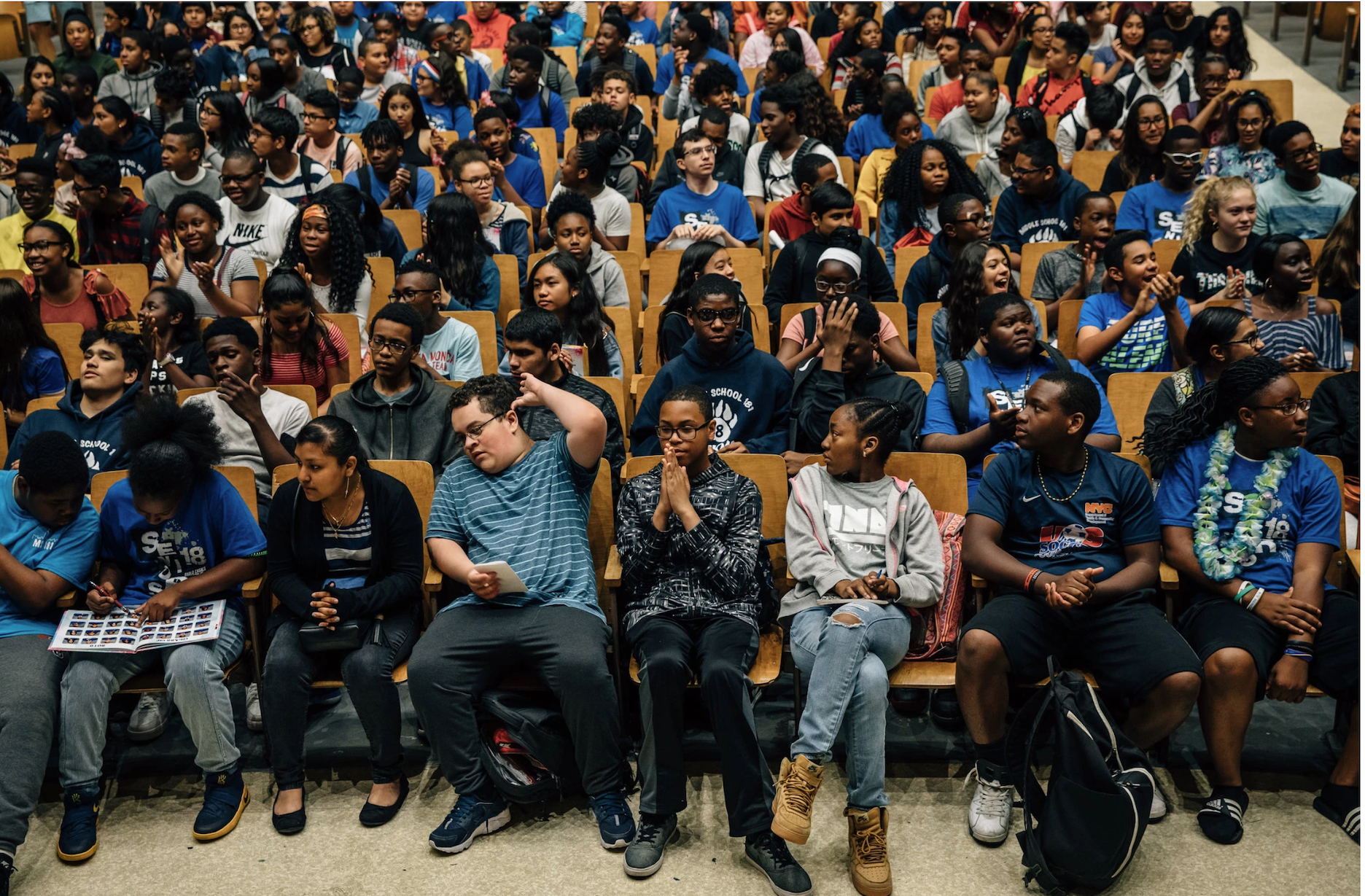
Jan 28, 2019

Last week, New York Times columnist David Brooks published an opinion piece on the nature of learning—on the fundamental link between cognition and connection, and about the essential relationships that are at the heart of education.
As he explains it, “the social brain pervades every learning process.” Everything we take in, hold onto, remember, and analyze is rooted in a social context: where were we, what were we doing, and, essentially, who were we with. Teaching isn’t just a soulless transfer of data from one brain to another. Rather, it’s about the whole person. Brooks says, “what teachers really teach is themselves—their contagious passion for their subjects and students,” and he quotes an educator: “Social and emotional learning is not an add-on curriculum. It’s the way we do school.”
At Clark, we work everyday to facilitate these connections, and we couldn’t agree more with Brooks’ perspective on where the fundamentals of education still reside.
While technology is the means through which we do it, at the center of our business we’re about getting educators face to face with the students that need them. Our tools are designed to let teachers and tutors maximize the time they spend interacting with students, building those relationships that are so key to student success.
Education is personal, and learning is a social and emotional process as much as an intellectual one. When we started Clark, we looked deeply at the ways in which technology could address some of the very real problems in education. We did an analysis of on-demand, online solutions for educating kids, and of ways in which artificial intelligence could be leveraged to increase access to education.
But as Brooks recognizes, teaching is about more than just the dispassionate offloading of information. He references an eye-opening study by Patricia Kuhl of the University of Washington, who measured the progress of infants taking face-to-face Chinese lessons with a tutor against that of those watching the same exact lessons through a video screen. Guess which group picked up sounds at a clip and which learned nothing?
Tutors step in to support students with unique needs. Maybe they’re falling behind, or are anxious about their academic performance. Maybe they’re truly gifted in certain subjects but don’t feel comfortable sharing their knowledge in the classroom, and so aren’t getting the specialized attention they need to thrive. How would an impersonal solution, or a tool based on artificial intelligence, help those kids?
We don’t believe it would. Ultimately, what we’re passionate about at Clark is the magic that happens and the real impact that can be made when you pair a human educator with a student. Because of what we know (and what Brooks explains) about cognitive learning, replacing the human isn’t the answer. What we can do instead is leverage tech to, in essence, give tutors superpowers, boosting the capacity and reach of real people beyond what they could do on their own.
We want to leverage technology to support the tutors working to keep education personal and relationship-based, while using software to automate all of the processes around them. By giving tutors the tools to take care of administrative and operational tasks, we replace busy work—not people—and supercharge the educators themselves, freeing them up to maximize time spent teaching, scale the number of students they teach, and expand the geographies they can teach in. Beyond extending the capacity of individuals, we’re enabling a latent workforce of educators to reach more kids both in person and online to, in turn, help those students reach their potential.
One thing that’s struck us in working with tutors at Clark is the longevity of tutoring relationships. In the businesses that we work with, tutors work with the same students for an average of three years. I’ve seen the importance of these educator-student relationships firsthand. My mom is a teacher—and the inspiration behind Clark. She still has past students come back to her classroom years after they’ve left it, whether it’s to share updates during transitional times like when they’re applying to college, or just to check in and share with her the person that they’ve become. They come back because they attribute part of that personhood to what they learned from her.
The bonds that students make with educators are fundamental to the way that they develop. Technology is offering us amazing opportunities to democratize access to learning, and we need to keep finding new ways to leverage that in this space. But we should also look critically at how student outcomes are actually achieved, and those outcomes are grounded in personal relationships. Those are the two forces I think about supporting when I think about running Clark.
